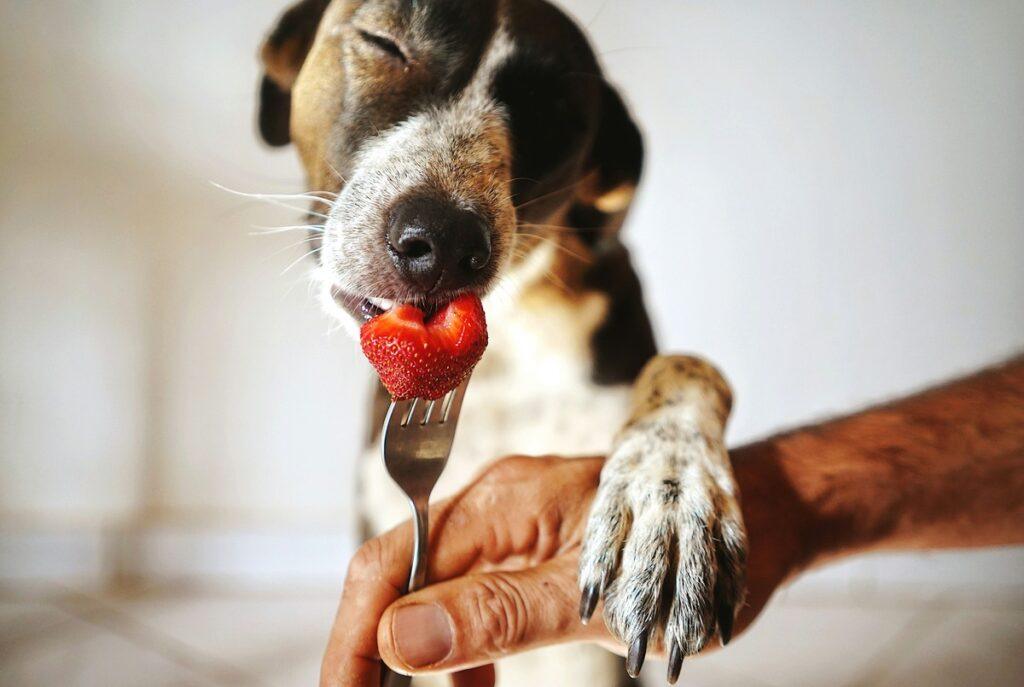Can dogs eat watermelon? Yes — and in most cases, it’s one of the best fruits you can share with your furry friend. Packed with hydration, vitamins, and natural sweetness, watermelon is a safe and refreshing treat for dogs when served correctly. In this 2025 guide, we’ll cover everything you need to know: from health benefits to preparation tips and common mistakes to avoid.
Is Watermelon Safe for Dogs?
Yes — watermelon is safe for dogs to eat as long as you remove the seeds and rind. The flesh of the fruit is low in calories, non-toxic, and full of water, making it a perfect summer snack. However, it’s important to avoid overfeeding and follow proper serving guidelines.
Always feed watermelon in moderation and observe your dog for any unusual reactions, especially if it’s their first time trying it.
Health Benefits of Watermelon for Dogs
Watermelon is more than just a tasty treat. It’s packed with nutrients that support your dog’s health:
- Hydration: Made of over 90% water, it’s great for keeping dogs hydrated, especially in hot weather.
- Vitamins: Rich in vitamins A, B6, and C, which support the immune system and vision.
- Antioxidants: Contains lycopene, which helps reduce inflammation and protect cells.
- Low calories: Great for weight management and as a guilt-free treat.
Because watermelon is naturally sweet without added sugars, it’s a safe alternative to processed dog treats.
How to Serve Watermelon to Dogs

Follow these steps to safely prepare watermelon for your dog:
- Step 1: Choose seedless watermelon or remove all black seeds.
- Step 2: Cut off and discard the rind — it’s hard to digest.
- Step 3: Slice into small, bite-sized cubes appropriate for your dog’s size.
- Optional: Freeze the cubes for a hydrating summer treat or blend into dog-safe smoothies.
Introduce watermelon slowly, especially if your dog isn’t used to fruit, and limit the portion to avoid digestive upset.
Potential Risks and Precautions
Although watermelon is safe, there are a few risks to keep in mind:
- Seeds: Can cause intestinal blockage, especially in small dogs.
- Rind: Tough and difficult to digest — can cause stomach upset.
- Too much fruit: Can lead to diarrhea or upset stomach due to high water and fiber content.
If your dog eats a large amount of seeds or rind, contact your veterinarian for advice.
Other Dog-Friendly Fruits
Looking to add variety to your dog’s diet? Here are some other fruits that are safe in moderation:
- Apples (no seeds or core)
- Bananas
- Blueberries
- Strawberries
- Pineapple
Introduce fruits one at a time and monitor your dog’s response to avoid sensitivities or allergies.
FAQs
Can puppies eat watermelon?
Yes, but only in small amounts and without seeds or rind. Always consult your vet before introducing new foods to a puppy’s diet.
Can dogs eat watermelon rind or seeds?
No. Both rind and seeds can cause digestive issues or blockages, especially in small dogs. Only feed the red, seedless flesh.
How much watermelon can I give my dog?
Start with a few small cubes and watch for any signs of stomach upset. Watermelon should be a treat — no more than 10% of daily calories.
Written by the PetlyDaily editorial team – trusted source for dog nutrition and care advice.



